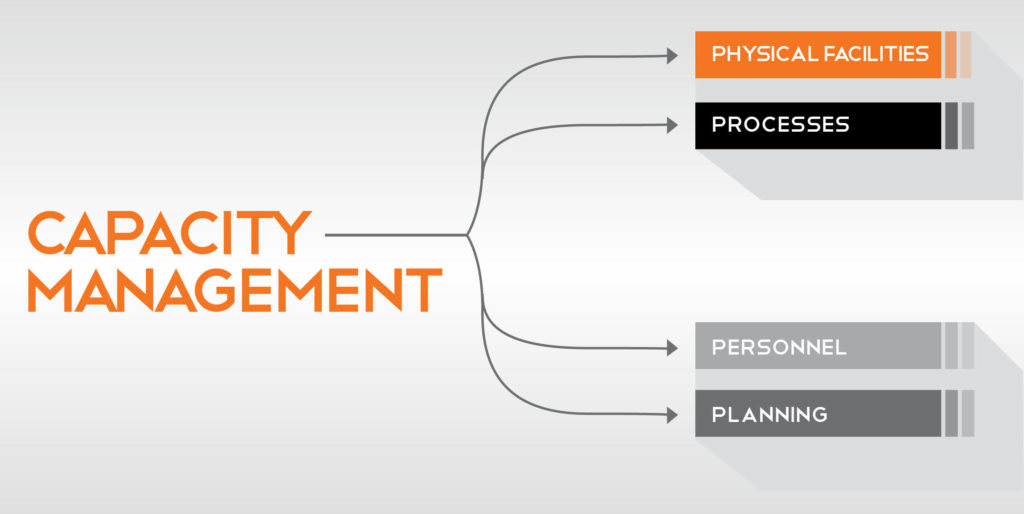Capacity management is defined by Inbound Logistics as “the concept that capacity should be understood, defined, and measured for each level in the organization to include market segments, products, processes, activities, and resources. In each of these applications, capacity is defined in a hierarchy of idle, non-productive, and productive views.” When we refer to capacity management, we are referring to the physical facilities, processes, and personnel available to meet the needs of clients with the maximum output available. Part of capacity management is capacity planning, which ensures that the needed resources will be available to meet the supply chain and logistics needs.
The capacity management system is able to leverage rates, transit times and provide the necessary information to optimize the supply chain process, thus leading to improved collaboration between carriers, shippers and supply chain managers.
Capacity management begins at distribution warehouses and ends when the product has arrived or the services for the client have been rendered. Thanks to capacity management, innovative solutions to provide flexible options and foresee capacity problems are readily available for logistics providers to better serve their clients.
TOC Logistics helps organizations better utilize containers, manage capacity and ultimately reach optimization within their international supply chains. For better container utilization and lower transportation costs, TOC Logistics has capacity management software to insure and increase stacking and loading efficiencies. It’s one of the many ways we provide efficiency gains, saving you time and money.
At TOC Logistics, we ensure the highest quality of capacity management and planning to stay efficient and drive down prices. Our extensive logistics and supply chain experience allows for us to predict times of tight capacity to ensure we’re able to provide the flexibility and resources needed to lock your load in. As a well trusted 3PL, our relationships with shippers and carriers helps us maintain higher levels of flexibility and lower prices.

